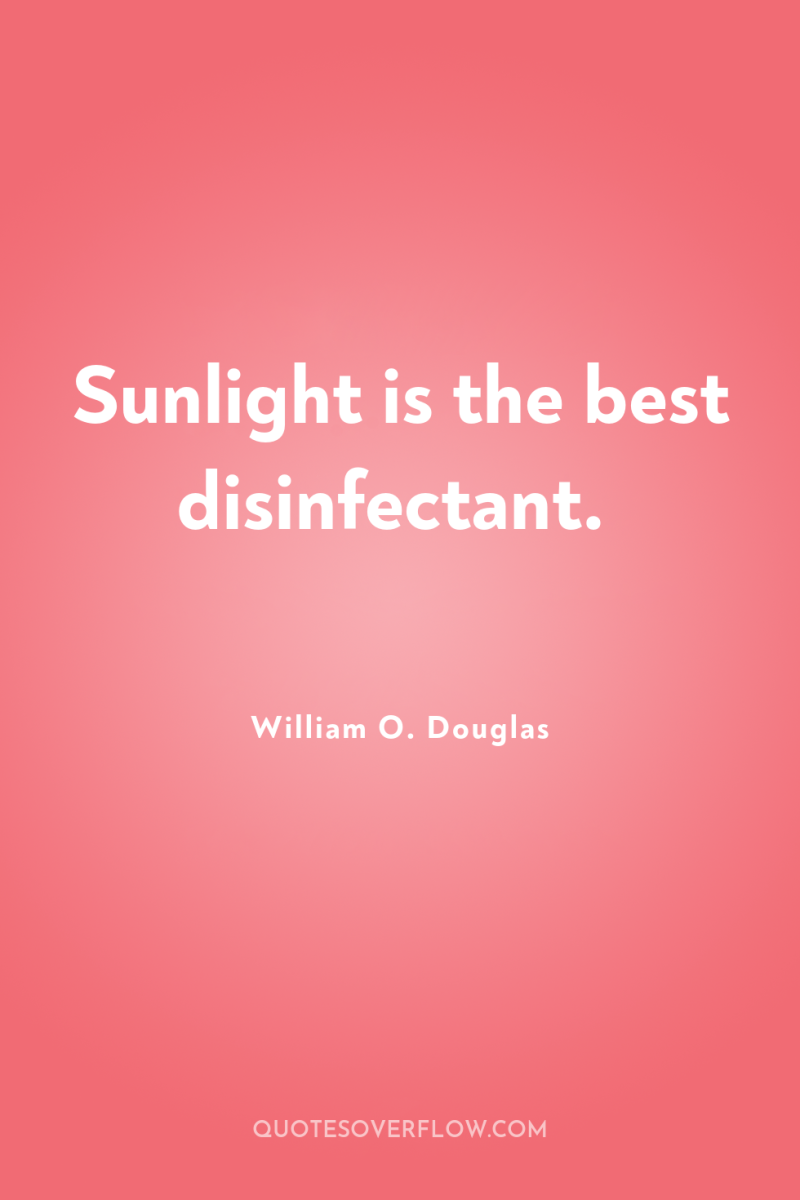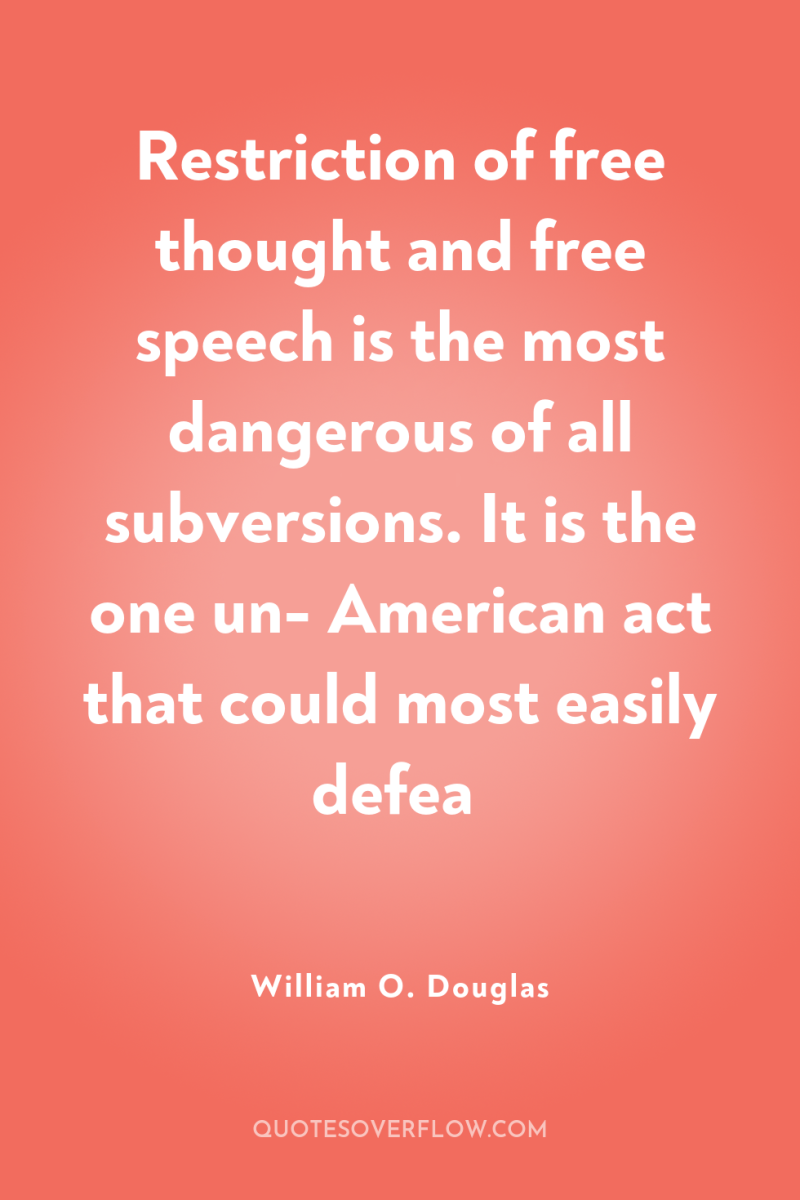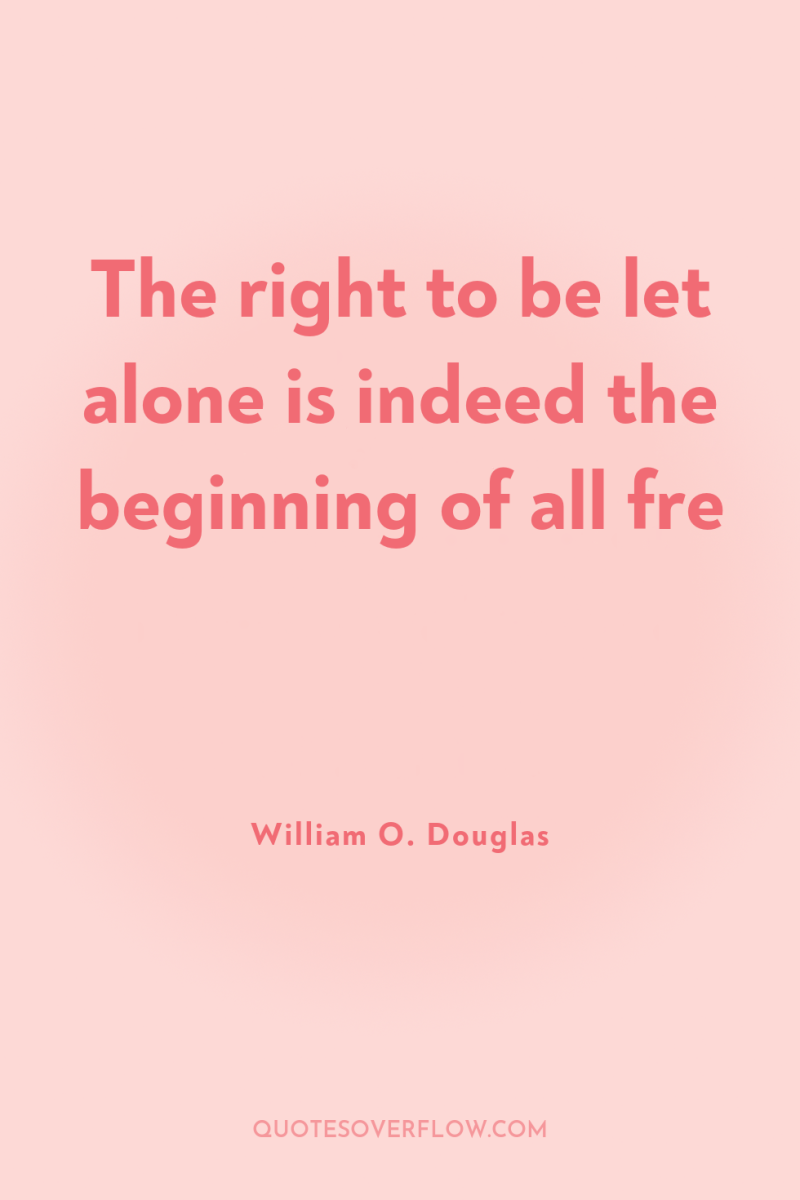
Sunlight is the best disinfectant.William O. Douglas

Restriction of free thought and free speech is the most dangerous of all subversions. It is the one un- American act that could most easily defeaWilliam O. Douglas

The right to be let alone is indeed the beginning of all freWilliam O. Douglas
As nightfall does not come at once, neither does oppression. In both instances, there is a twilight when everything remains seemingly unchanged. And it is in such twilight that we all must be most aware of change in the air — however slight — lest we become unwitting victims of the darkness.William O. Douglas
The American government is premised on the theory that if the individual man is to be free, his ideas, his beliefs, his ideology, his philosophy, must be placed beyond the reach of government.William O. Douglas
Once the government can demand of a publisher the names of the purchasers of his publications, the free press as we know it disappears. Then the spectre of a government agent will look over the shoulder of everyone who reads. The purchase of a book or pamphlet today may result in a subpoena tomorrow. Fear of criticism goes with every person into the bookstall. The subtle, imponderable pressures of the orthodox lay hold. Some will fear to read what is unpopular, what the powers-that-be dislike. When the light of publicity may reach any student, any teacher, inquiry will be discouraged. The books and pamphlets that are critical of the administration, that preach an unpopular policy in domestic or foreign affairs, that are in disrepute in the orthodox school of thought will be suspect and subject to investigation. The press and its readers will pay a heavy price in harassment. But that will be minor in comparison with the menace of the shadow which government will cast over literature that does not follow the dominant party line. If the lady from Toledo can be required to disclose what she read yesterday and what she will read tomorrow, fear will take the place of freedom in the libraries, book stores, and homes of the land. Through the harassment of hearings, investigations, reports, and subpoenas government will hold a club over speech and over the p .William O. Douglas
These examples and many others demonstrate an alarming trend whereby the privacy and dignity of our citizens is being whittled away by sometimes imperceptible steps. Taken individually, each step may be of little consequence. But when viewed as a whole, there begins to emerge a society quite unlike any we have seen -- a society in which government may intrude into the secret regions of man's life at .William O. Douglas
We are rapidly entering the age of no privacy, where everyone is open to surveillance at all times; where there are no secrets from governWilliam O. Douglas
Security can only be achieved through constant change through discarding old ideas that have outlived their usefulness and adapting others to current facts.William O. Douglas
We are a religious people whose institutions presuppose a Supreme Being.William O. Douglas
Tell the FBI that the kidnappers should pick out a judge that Nixon wants back.William O. Douglas
One who comes to the Court must come to adore, not to protest. That's the new gloss on the 1st Amendment.William O. Douglas
Marriage is a coming together for better or for worse, hopefully enduring, and intimate to the degree of being sacred.William O. Douglas
Free speech is not to be regulated like diseased cattle and impure butter. The audience that hissed yesterday may applaud today, even for the same performance.William O. Douglas
The Constitution is not neutral. It was designed to take the government off the backs of people.William O. Douglas
The right to be let alone is indeed the beginning of all freedoms.William O. Douglas
Common sense often makes good law.William O. Douglas